Is Malta a Tax Haven? Everything You Need to Know in 2025
January 7, 2025
Is Malta a tax haven?
The question often crops up during any discussion of jurisdictions with tax-friendly systems.
As an EU member state , Malta is renowned not only for its stunning landscapes and history but also for its welcoming business environment.
Once upon a time, that included the country’s popular citizenship-by-investment program, which has now largely been replaced by the Maltese Exceptional Investor Naturalisation (MEIN) program.
While some countries are indeed known for being tax-free, not all fit the tax haven label.
Malta – whether you consider it a tax haven or not – offers a strategic advantage for establishing tax residency, boasting a tax-friendly climate without being a traditional tax haven.
For those interested in establishing residency or citizenship in a thriving EU country, Nomad Capitalist provides expert guidance to help you grow your wealth, legally reduce taxes and enhance your peace of mind.
Reach out to us to start crafting your personalised plan today, or keep reading to learn more about Malta’s tax system and whether or not we would consider it a real ‘tax haven’ (or if those even exist these days anyway).
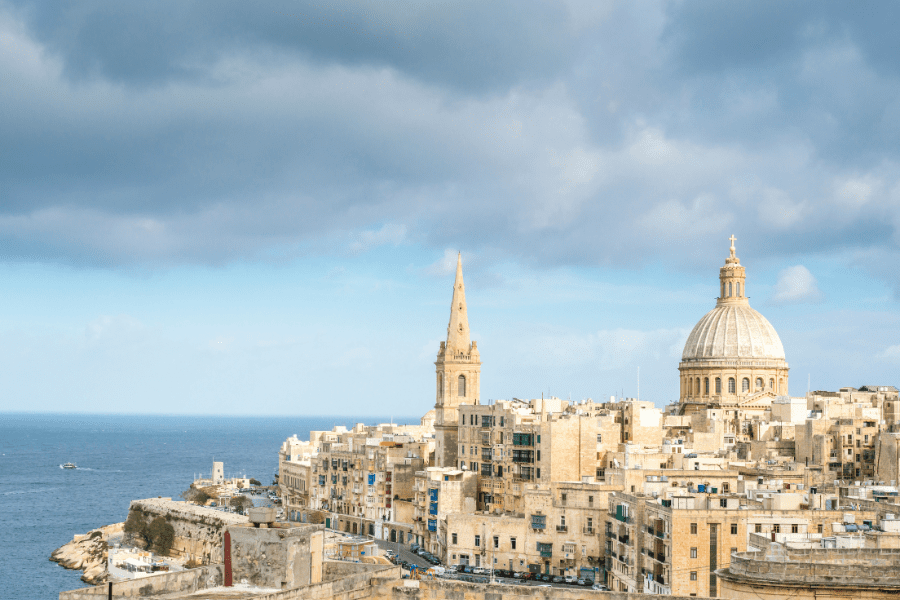
What to Know About Malta
Before moving to Malta to take advantage of its low corporate tax rate and other unique incentives, it’s great to know a bit about where you might be headed.
Malta is a Southern European island nation in the Mediterranean Sea between Italy and Libya. Its three main islands are Comino, Gozo, and Malta. A gateway between Africa and Europe, Malta provides easy access to both these markets.
Malta is an EU Schengen country, and its currency is the euro. The official languages are Maltese and English, making the country one of the most suitable for English- speaking foreigners who don’t want to face a huge language barrier.
While popular for tourists and holidaymakers from both North America and Europe, Malta is a small country with a population of around 550,000, making it one of the most densely populated European countries.
Why move to such a country?
Apart from the favourable tax system and 300-plus days of sun per year, most high-net- worth individuals move to Malta as part of a solid Plan B strategy to obtain a second passport.
Nomad Passport Index currently ranks the Maltese passport 14th globally owing to its excellent perception, positive stance on dual citizenship and immense travel freedom.
Maltese passport holders can travel visa-free or visa-on-arrival to 171 countries, making it an excellent tool for anyone looking to add a strong EU passport to their passport portfolio.
Having a powerful passport doesn’t make Malta a tax haven, though. Speaking of, what exactly is a tax haven, and do those even exist these days?
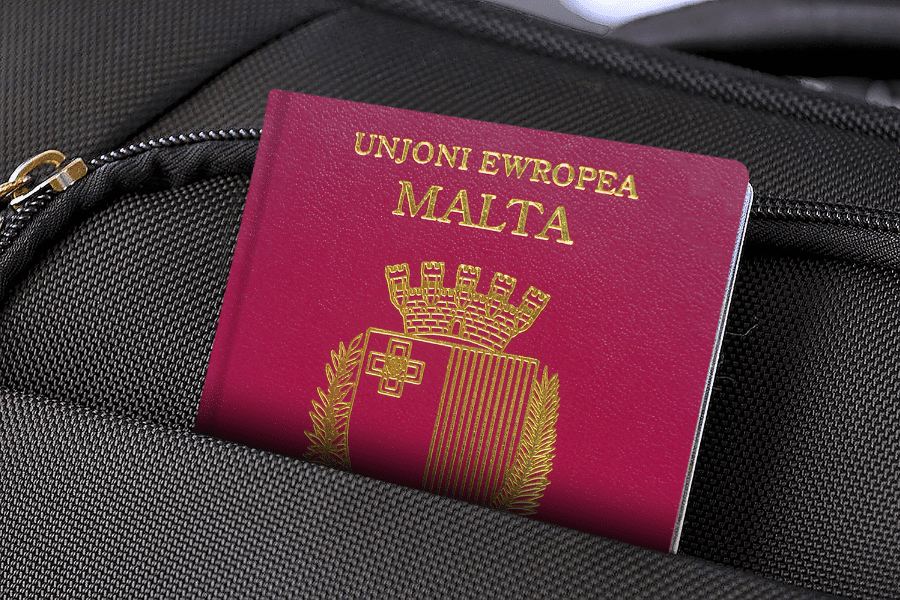
What is a Tax Haven?
A tax haven is a jurisdiction where foreign individuals or companies may receive or own assets and income without paying high taxes on them.
Generally, tax havens feature the following characteristics:
- Zero or low taxes
- Minimal or non-existent reporting requirements
- Lack of transparency obligations
- Lack of local residence (physical presence) requirements
In the past, dealing with a tax haven was almost synonymous with tax evasion and money laundering. People used such jurisdictions for tax avoidance by hiding money from tax authorities back home.
That’s why, now, most tax-friendly countries consider the title of a tax haven as derogatory and do their best to stay away from it (through proper compliance with international financial organisations).
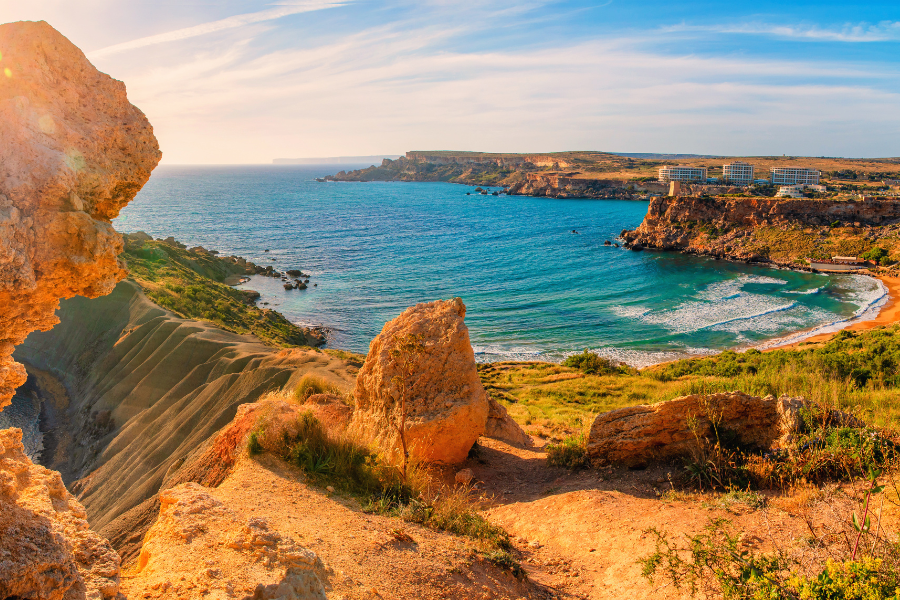
So, Is Malta a Tax Haven Country or Not?
No comprehensively defined standard for classifying a tax haven country exists yet.
However, several international regulatory bodies, such as the Council of the European Union and the Organisation of Economic Cooperation and Development (OECD), monitor tax havens.
To answer whether Malta is a tax haven, we’ll refer to the OECD’s list of uncooperative tax havens and the EU’s list of non-cooperative jurisdictions for tax purposes.
No jurisdiction is currently listed on the OECD’s list of uncooperative tax havens.
However, the EU lists 11 countries as non-cooperative jurisdictions for tax purposes. The US Virgin Islands, Russia, Anguilla and Panama are among those on the list. Notably absent is Malta.
Hence, for all intents and purposes, Malta is not a tax haven.
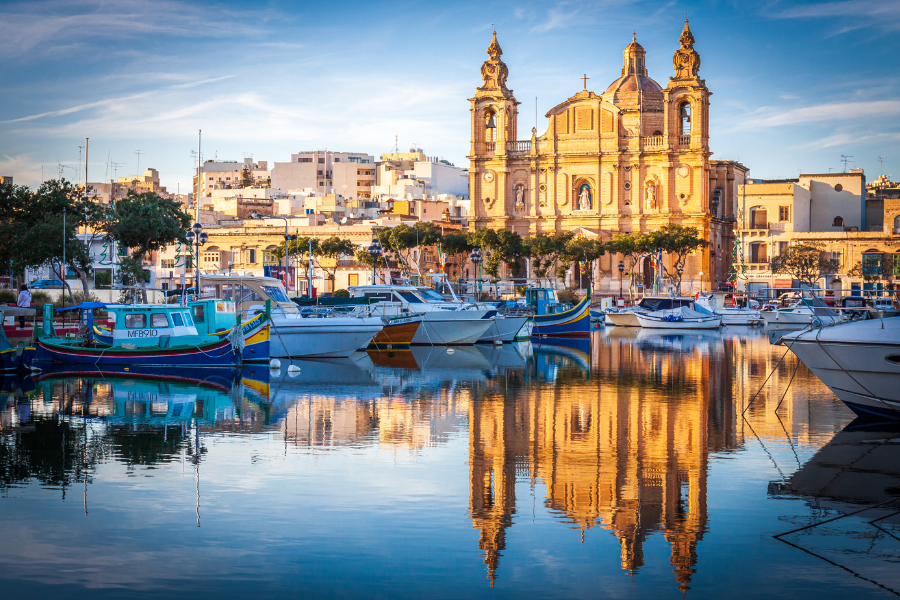
Why Do People Categorise Malta as a Tax Haven?
So, if Malta isn’t a tax-free haven, then why is it known as such?
Most people are simply uninformed. Many think every tax-free or tax-friendly country is a tax haven or may consider Malta a tax haven because of its former CBI program (since several CBI countries are tax-free).
They may also consider Malta a tax haven owing to several benefits it provides to foreign companies and shareholders.
Following its accession to the EU, Malta had to restructure its offshore financial services sector to conform to EU legislation.
However, the country has successfully maintained its appeal attracting foreign companies and investments due to its excellent reputation, low tax and rebate policies, corporate legislation, and stable banking system.
No matter the reason, Malta is neither a tax haven nor entirely tax-free.
Personal income tax there is progressive and can go up to 35%, while the corporate tax stands at a flat 35%, albeit with some great tax incentives and reductions you can use to lower the effective tax rate to 5%.
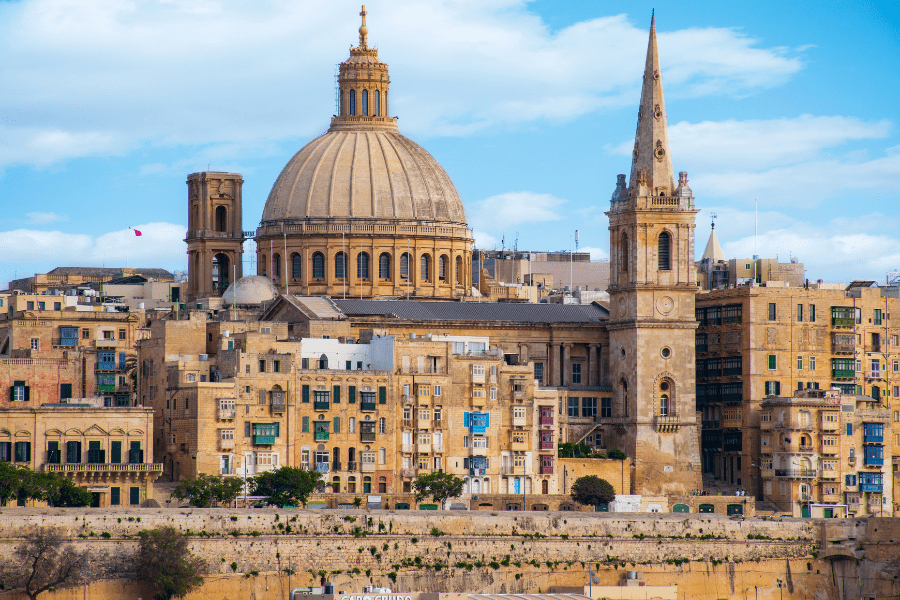
Malta’s Tax System
Malta taxes an individual on their worldwide income if they’re domiciled and resident in Malta.
A Maltese resident not domiciled in Malta is taxable only on Malta-sourced income and any foreign income remitted to Malta. Moreover, there’s no capital gains tax on foreign-sourced capital gains for such individuals.
Malta has a full imputation corporate tax system where corporate profits are taxed at 35%.
However, when dividends are distributed to shareholders out of taxed profits, the dividend carries an imputation credit of the tax paid by the company on the distributed profits. After the tax refund, a shareholder’s tax burden decreases to about 5%.
The following are the most common taxes and the respective Malta tax rates:
- Personal income tax rate: 0-35%
- Corporate income tax rate: Flat 35%
- VAT: 18%
- No wealth tax
- No gift tax
- No estate tax
- No inheritance tax
- No annual property tax
- No tax on interest
- No tax on dividends
- No withholding on dividends
Benefits of Malta as a Low-Tax Offshore Jurisdiction
While Malta isn’t technically a tax haven, Malta tax residency, or general residency, is beneficial for more than a few reasons.
The following significant benefits make Malta an attractive offshore fund destination:
Strategic Geographical Location
Owing to its central Mediterranean location, Malta has easy access to EU ports and trade treaties, making it an appealing base for businesses looking to grow into European and North African markets.
EU Member State
One of the most significant advantages of moving your business to Malta is its EU member status. Corporations can enjoy a stable regulatory framework, access the world’s largest single market, and not worry about dealing with any tax-haven-related extra paperwork.
Good Financial Reputation
Malta doesn’t have a shady past like Belize or the Bahamas. Maltese companies enjoy a good reputation and find it far easier to bank than traditional tax haven companies.
Progressive Personal Income Tax Regime
Malta’s personal income tax is progressive, ranging from 0% to 35%. Moreover, the country offers several tax advantages, exclusions, and credits for certain types of income.
Low Corporate Income Tax Rate
Malta’s corporate tax rate of 35% can be lowered to as little as 5% through several tax advantages and credits available.
Double Taxation Treaties
Malta has double taxation treaties with over 70 countries, allowing companies and individuals to avoid paying double taxes. The country also provides companies access to EU ports and favourable trade treaties.
No Exchange Control
Malta’s currency has been Euro since 2008, and the country has had no exchange controls since its accession into the EU in 2004.
Diverse Community
Malta has always been favoured by EU nationals and digital nomads owing to its warm climate, stable infrastructure, and breathtaking landscape. The country has also done a tremendous job of attracting foreign investors, entrepreneurs, and a highly skilled workforce. All that makes up for a mostly bilingual, highly educated, skilled community.
Business-Friendly Environment
As one of the most business-friendly countries in the world, Malta offers a versatile corporate structure with detailed regulations to form business entities, such as LLCs, trusts, partnerships, and more.
Malta also allows single-member company ownership, making it pretty convenient to form and run a Maltese company. Business owners can also utilize nominee services in Malta to hide their real identities from public records.
Foreigner-Friendly Regulations
Malta boasts contemporary corporate legislation with considerable flexibility for foreign enterprises. For example, the country allows international corporations to re-domicile, streamlining the establishment of an offshore presence in Malta.
Non-resident companies can enjoy many of the same benefits as resident Maltese companies, such as reduced taxes and access to other EU countries and markets.
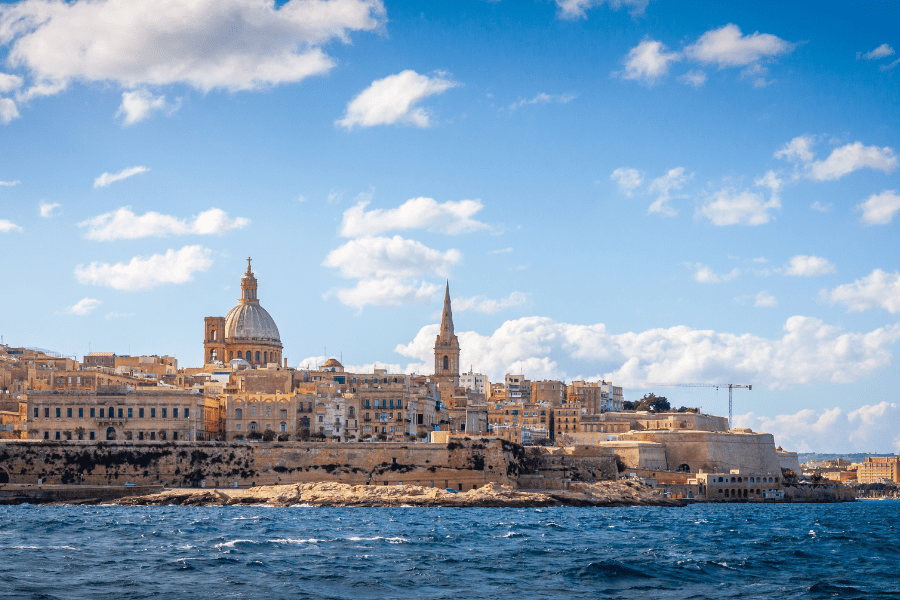
Is Malta a Tax Haven? Everything You Need to Know in 2025: FAQs
Malta is often seen as a tax haven due to its favourable tax system, offering attractive incentives for businesses and individuals.
Its EU membership, coupled with low corporate tax rates and tax treaties, enhances its appeal as a tax-efficient jurisdiction, but it’s not a traditional tax haven, nor is it tax-free.
Malta follows a full imputation tax system, where companies pay a 35% corporate tax, but shareholders can claim a significant refund. This structure reduces effective tax rates, often lowering it to as little as 5%.
Reduced corporate tax rates, no capital gains tax on securities and tax exemptions for qualifying businesses are some of the most popular Malta tax incentives.
Foreigners residing in Malta are taxed on income earned in Malta and foreign income remitted to Malta. Progressive tax rates range from 0% to 35%, with various deductions and incentives available to reduce taxable income.
There is no real ‘tax haven’ in the EU. Malta, while not a tax haven, is one of the best low-tax countries in Europe due to its low effective tax rates, robust legal framework and strategic EU location.
Russia and other tax havens like Panama and Fiji are currently part of the EU’s list of non-cooperative jurisdictions for tax purposes.
Should You Move to Malta to Reduce Your Taxes?
Is Malta a tax haven in the most traditional sense of the term? No.
Is Malta on the OECD or EU’s list of non-cooperative jurisdictions for tax purposes? No.
Does Malta have a low-tax environment and business-friendly regulations? Yes.
Can you move to Malta to considerably reduce your taxes? Absolutely.
You see, tax haven or not, Malta is an excellent jurisdiction to set up a business, establish residency or gain second citizenship thanks to its central Mediterranean location, stable regulatory framework, favourable tax regime and foreigner-friendly regulations.
This is important considering that, today, it may actually be counter-productive to associate yourself or your business with traditional tax havens. You may be able to enjoy zero taxes there, but good luck finding a credible bank willing to deal with you.
Moreover, the lack of reporting requirements is a one-way ticket to tons of paperwork at any financial institution you will ever go to.
In contrast, moving to offshore jurisdictions like Malta may be more beneficial in the long term.
You will have to pay taxes in Malta, sure (albeit a small amount), but no one will ever make you fill out ten extra forms just because you’re running a business out of a tax haven.
You will also have the advantage of an EU business and all the perks that come along with it, like a stable political and economic landscape.
Sounds like something you’re looking for?
We’ve helped many clients establish a business , second residency or citizenship in Malta. We can help you do the same. Set up a call with us today and let us help you go where you’re treated best.


How to Get UAE Citizenship – The Complete Guide
Sovereignty – both national and personal – shapes ambition, secures wealth, and defines status in a shifting global order. For the high-achieving global citizen, acquiring a second or even third passport is more than a lifestyle upgrade; it’s a strategic move in long-term financial and geopolitical positioning. But not all citizenships are created equal – […]
Read more

A Gateway to Central Asia: New Kazakhstan Golden Visa Program for 2025
Central Asia just raised the stakes in the golden visa game. In May 2025, Kazakhstan officially launched a 10-year Golden Visa program in an ambitious move to position the country as a serious contender in the global investor migration space. At a time when other international regions are rolling back their citizenship and residency options, […]
Read more

Top Countries Offering Golden Visas in 2025
Residency is no longer about lifestyle – it’s about leverage In an increasingly unpredictable world, Golden Visas offer something most governments can’t: certainty in exchange for capital. They are more than migration tools; they are strategic safeguards offering residence rights, future citizenship, global mobility, and access to tax-friendly jurisdictions. For investors, entrepreneurs and globally minded […]
Read more




